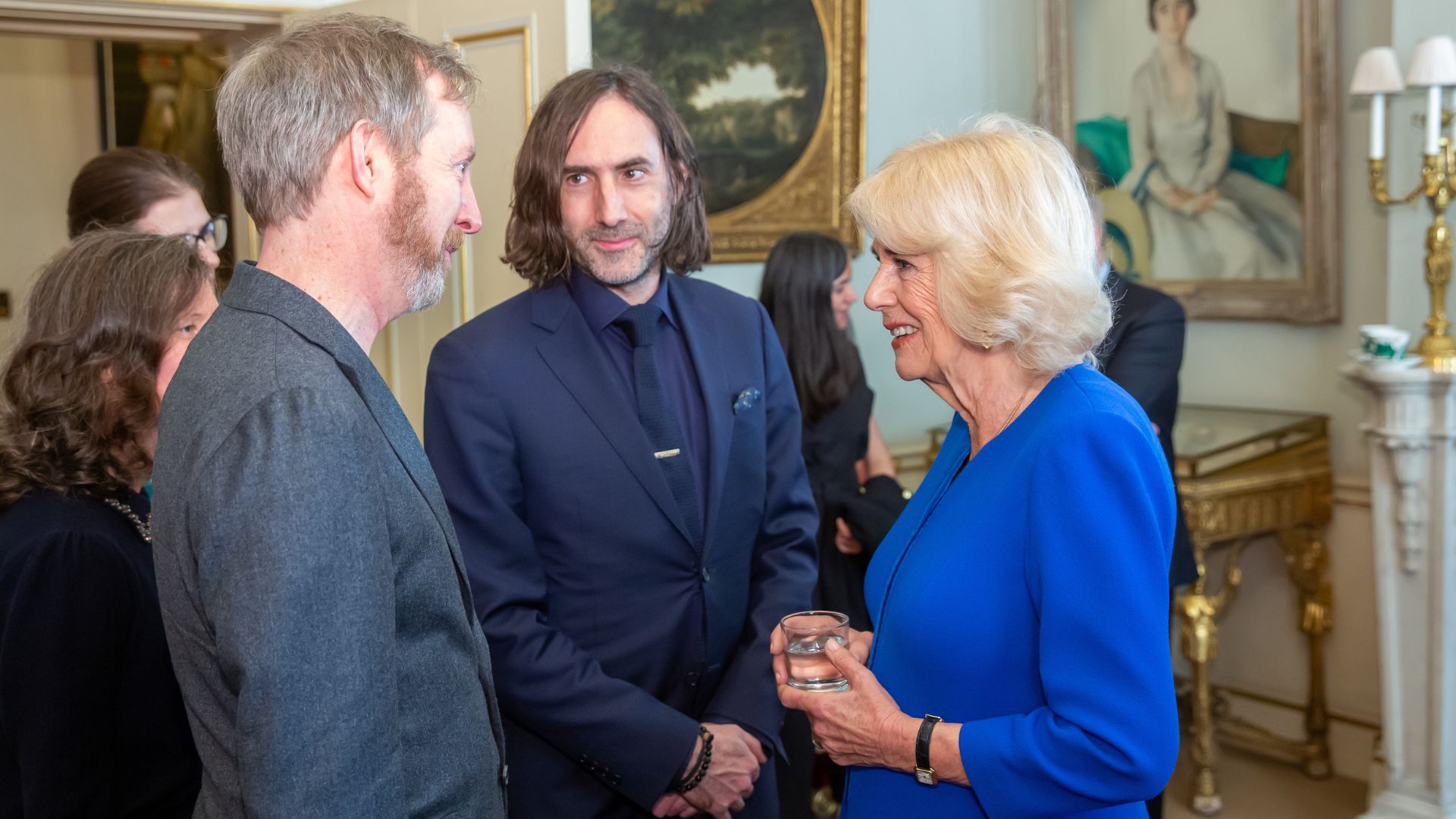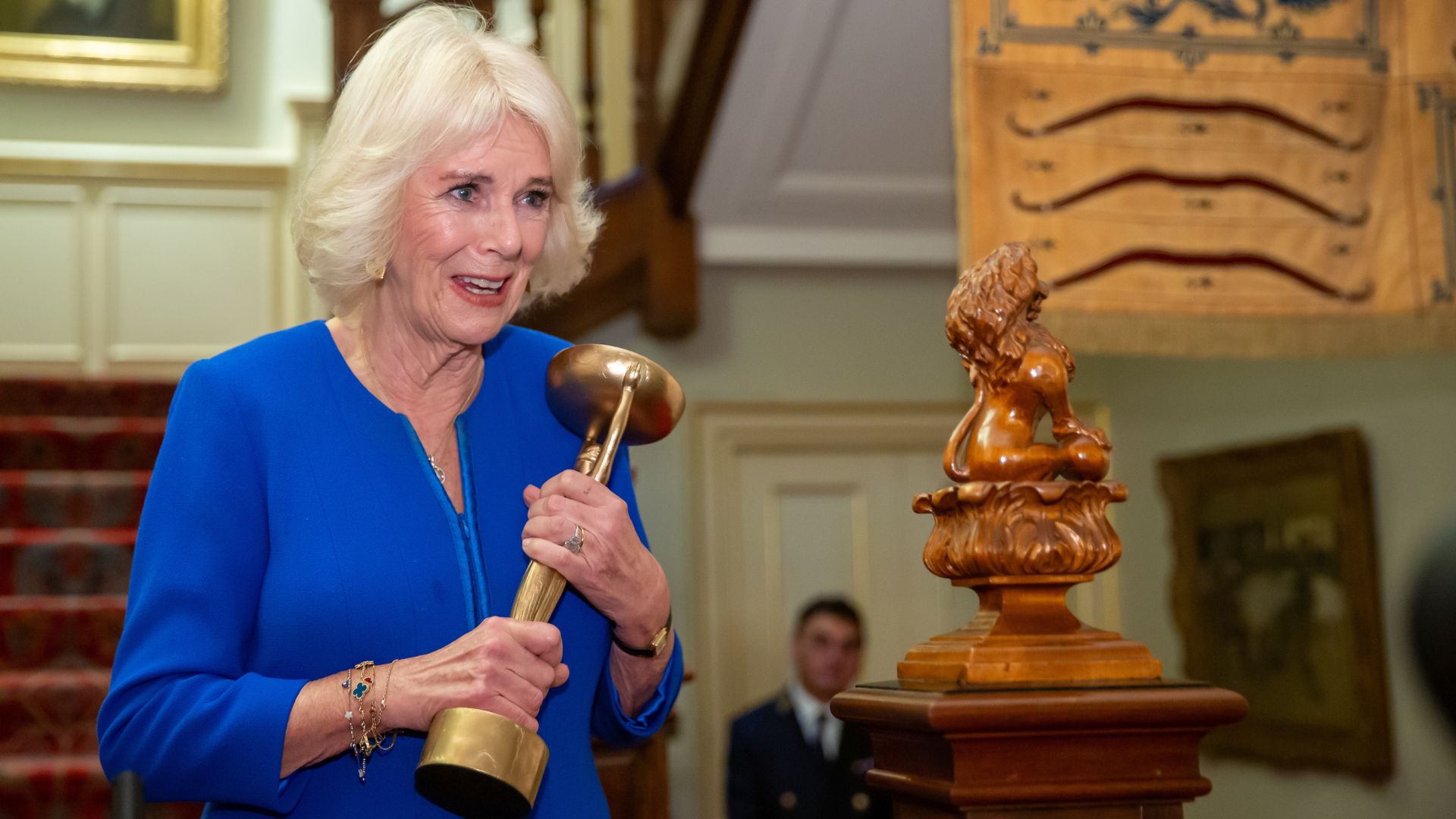You are viewing your 1 free article this month. Login to read more articles.
Queen Camilla hosts reception for Booker-shortlisted authors
Queen Camilla hosted a reception at Clarence House this morning (23rd November) to celebrate the Booker Prize 2023-shortlisted authors, ahead of the winner announcement this Sunday (26th November).
The shortlisted authors were present at the reception, as were previous winners of the Booker Prize, including Sir Ben Okri, Dame Penelope Lively, Shehan Karunatilaka and Alan Hollinghurst. Sir Ben Okri read a poem to the assembled guests during the reception, before Her Majesty was presented with the Booker Prize trophy, named "Iris" in honour of the 1978 Booker winner Iris Murdoch.
None of the six authors has previously been shortlisted for the prize and there are two debuts on the shortlist.
This year’s shortlist is made up of Sarah Bernstein’s Study for Obedience (Granta Books), Jonathan Escoffery’s If I Survive You (Fourth Estate), Paul Harding’s This Other Eden (Hutchinson Heinemann), Paul Lynch’s Prophet Song (Oneworld), Chetna Maroo’s Western Lane (Picador) and Paul Murray’s The Bee Sting (Hamish Hamilton).
The 2023 judging panel is chaired by twice-shortlisted novelist Esi Edugyan. She is joined by actor, writer and director Adjoa Andoh; poet, lecturer, editor and critic Mary Jean Chan; author and professor James Shapiro; and actor and writer Robert Webb.

Edugyan said: “The best novels invoke a sense of timelessness even while saying something about how we live now. Our six finalists are marvels of form. Some look unflinchingly at the ways in which trauma can be absorbed and passed down through the generations, as much an inheritance as a well-worn object or an unwanted talent. Some turn a gleeful, dissecting eye on everyday encounters. Some paint visceral portraits of societies pushed to the edge of tolerance. All are fuelled by a kind of relentless truth-telling, even when that honesty forces us to confront dark acts. And yet however long we may pause in the shadows, humour, decency, and grace are never far from hand.
“Together these works showcase the breadth of what world literature can do, while gesturing at the unease of our moment. From Bernstein and Harding’s outsiders attempting to establish lives in societies that reject them, to the often-funny struggles of Escoffery and Murray’s adolescents as they carve out identities for themselves beyond their parents’ mistakes, to Maroo and Lynch’s elegant evocations of family grief – each speaks distinctly about our shared journeys while refusing to be defined as any one thing. These are supple stories with many strands, many moods, in whose complications we come to recognise ourselves. They are vibrant, nervy, electric. In these novelists’ hands, form is pushed hard to see what it yields, and it is always something astonishing. Language – indeed, life itself – is thrust to its outer limits.”
Gaby Wood, chief executive of the Booker Prize Foundation, added: “This is truly a list without borders. It includes a Briton of Indian descent, an American of Jamaican descent, a Canadian recently named one of Granta’s Best Young British Novelists, and two Irish authors.
“Though new to the Booker shortlist, all of these writers have been lauded elsewhere or in other ways. One has been longlisted for the Booker with a previous novel. One has won the Pulitzer. A third has just been longlisted for Canada’s Giller Prize. Another has been nominated, in translation, for the two most prestigious French prizes. The two debut authors have both won the Plimpton Prize, awarded by the Paris Review.
“It’s a pleasure to be bringing their extraordinary talents and vastly varied styles to Booker Prize readers – and we can’t wait to hear what the thousands of members of the new Booker Prize Book Club on Facebook have to say about them.”













